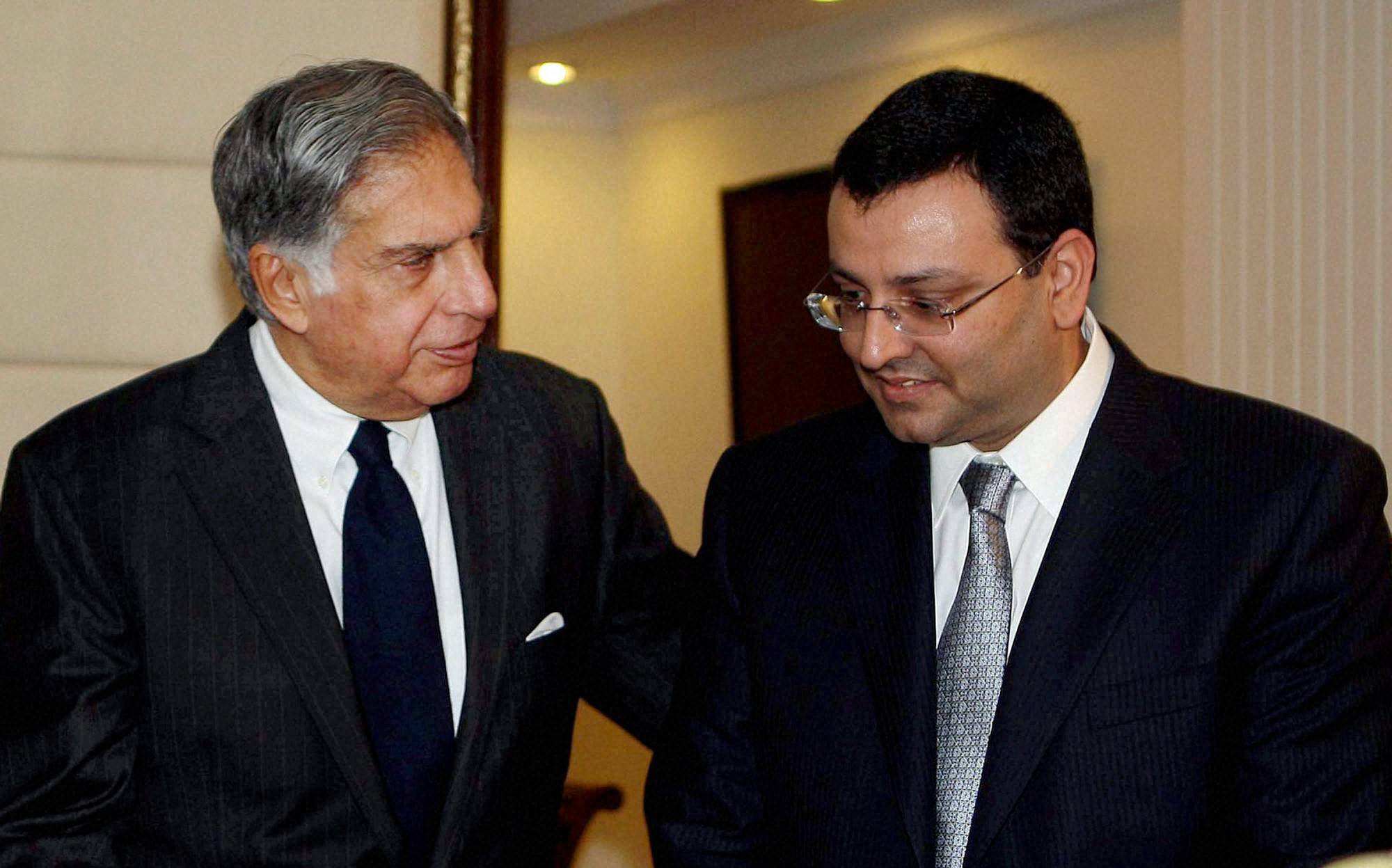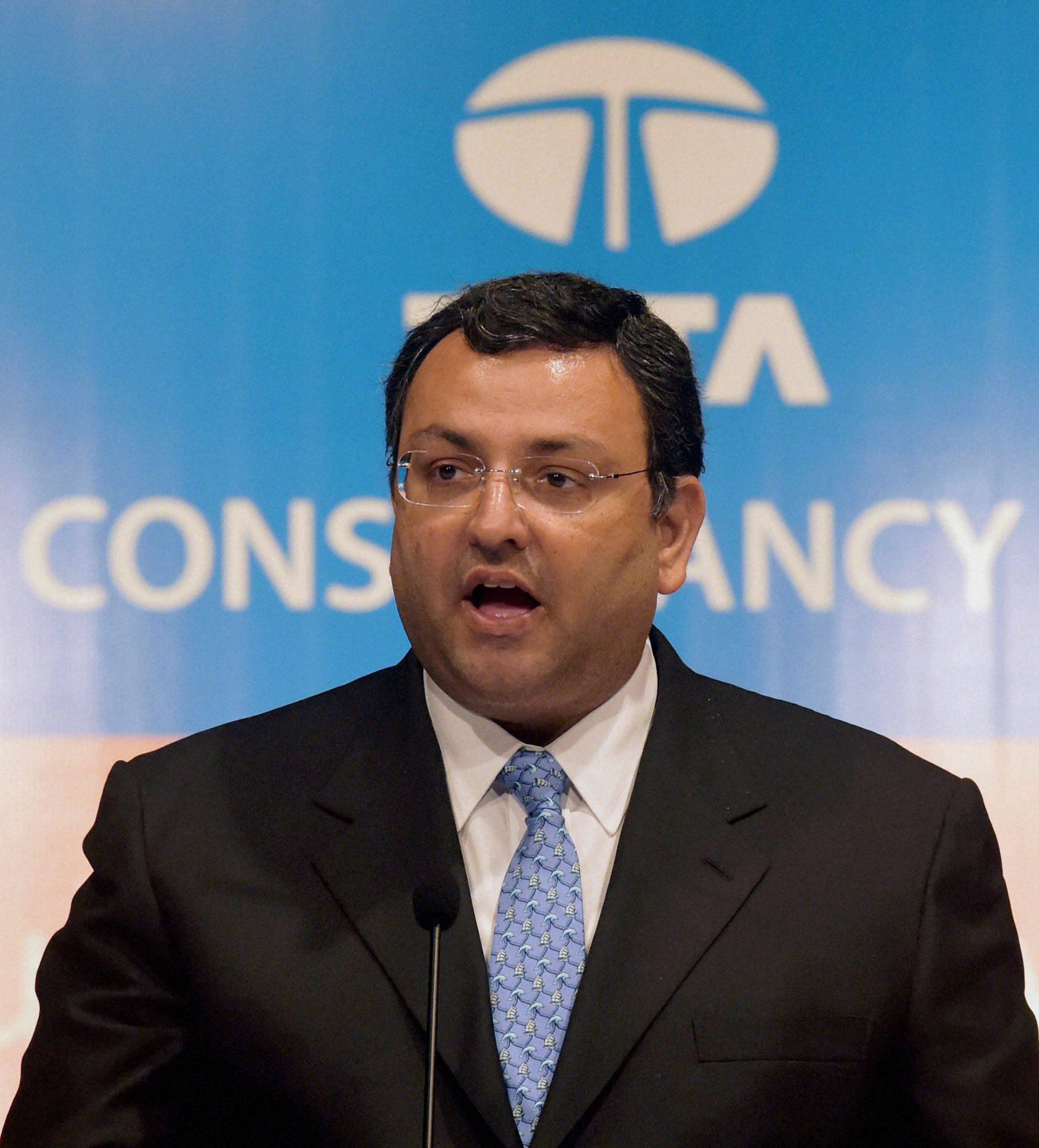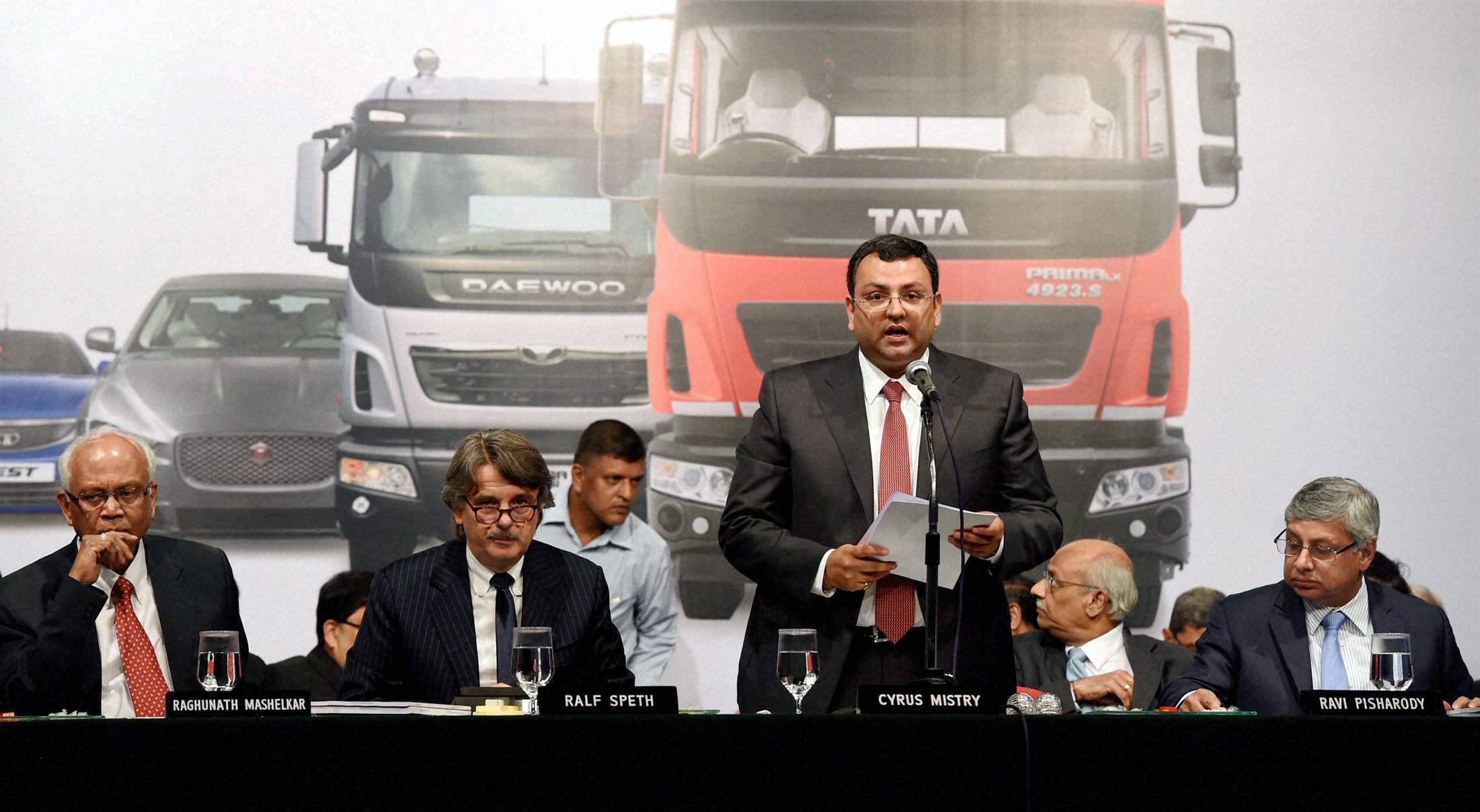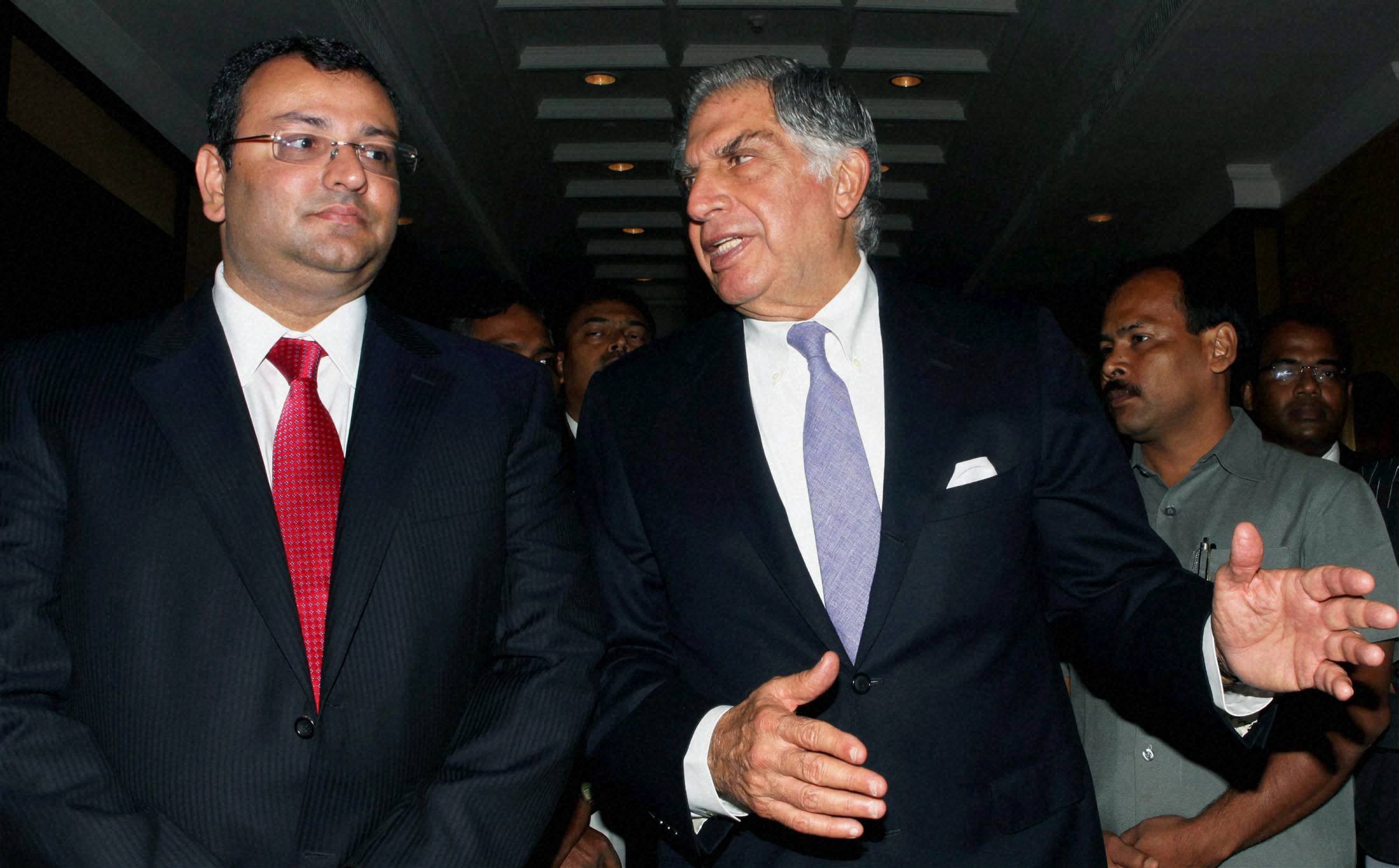Nothing tells us as much about the Tatas as the way in which they handled the Ratan Tata succession issue, and its reversal two days ago -. Ratan Tata walked off into the sunset in a blaze of glory, having handed over power to a non-Tata after taking the group to the pinnacle of global achievement. He is now back, stepping over the reputation of the man he himself anointed after a high-profile headhunt in 2012.
In removing Cyrus Mistry in a boardroom manoeuvre less than four years after making him Chairman of Tata Sons, the Tatas have blotted their copybook. There are several mistakes and blunders the group may have to live down in the process of installing and uninstalling Cyrus Mistry.
Mistake No 1: When an iconic leader leaves after 21 successful years at the helm, you need some degree of continuity and not uncertainty. Logically, the Tatas should have appointed an insider whom they trusted.
Cyrus was an outsider to the Tatas, and an inheritor and businessman in his own right. He was bound to be his own man, and thus likely to be in conflict with the Tata legacy.

Mistake No 2: Even assuming Mistry was the right choice, there was need for an extended handover. This, the Tatas appear not to have done. When you bring an outsider to head the group, you don’t leave him to fend for himself, especially when each Tata group CEO runs global businesses worth several billion dollars, bigger than the businesses Mistry may have run.
Ratan Tata’s visible backing was necessary to gain acceptance for Mistry, but did this happen? Mistry took a lot of time to grow into his role and start fixing things. It is doubtful he gained complete acceptance as the new boss of the Tata Group.
Mistake No 3: When you install the son of your largest single shareholder as Chairman (Mistry’s Shapoorji Pallonji Group owns nearly 18.5 per cent in Tata Sons), you have to be doubly sure that you have intense trust in him.
There was absolutely no scope for error, for big shareholders have clout. They can embroil you for years in courts if they feel wronged. Mistry (through his group) had a greater claim to ownership of the Tatas than Ratan Tata himself, whose personal ownership was just 0.8 per cent.
What Tata had was the name and the trust of the various Tata trusts, which own two-thirds of Tata Sons. By removing Mistry as chairman unceremoniously, the Tatas have risked more than just their reputation.
Mistake no 4: There was possibly a mismatch in values between the Tatas and the Mistrys, despite the two families’ close business and personal ties. The Pallonji Mistry group operates in the not-so-straight construction and real estate business, while most of the Tata businesses are blue-blooded global ones.
Even though the Tatas are themselves into real estate, the group as a whole sees itself as a custodian of ethical values. The Niira Radia affair dented this image, but Ratan Tata managed to ride it out. Did the Tata group bosses see Mistry as an interloper from a lesser business?

Mistake No 5: There seems to have been no group-level plan of action when Mistry stepped in. At the time Ratan Tata relinquished charge, the group was in deep trouble; debts in key companies were at very high levels, especially due to the Corus acquisition, and in the telecom venture and power sector. As at the end of March 2016, the group had a net debt of $24.5 billion (Over Rs 1,60,000 crore).
When you have a new man coming in with that kind of debt burden on his head, the Tata Sons board should have had a debt-reduction and restructuring plan ready for him to vet and sanction. But till date the Tatas have not come to grips with this.
Not all the blame for this can rest with Mistry; the promoter entities and the Tata Sons board must also carry the can. Mistry had no hand in creating the problem. The group has been more sanguine about debt due to the big cash generating machine called TCS. This mistake precedes Mistry.
Mistake No 6: There appears to have been no early feedback system. When you throw someone at the deep end of the pool, the chances are he will make some mistakes, or take several dives before learning to swim.
If the promoters felt that Mistry was doing something wrong or not doing something right, or taking too much time to do the right things, the key question is whether this feedback was given on time.
All news reports on October 25, talk of a relationship souring over the last one year or so, not earlier. Was the promoters’ unhappiness (or concerns) conveyed to Mistry before push came to shove?
Mistake No 7: Was the Mistry brief itself clear enough? The challenges at the start of Ratan Tata’s term as Chairman in the 1990s were different from the time Mistry started in 2012.
Tata’s challenge was to unify a group that was till then run by separate satraps. Having achieved that, he took the group global with 65 per cent of its revenues coming from abroad.
Mistry’s challenge was to handle the hangover after a huge acquisition and expansion binge. Was his brief to continue where Tata left off (i.e. continue expanding aggressively) or to tie up the loose ends (especially the debt overhang) that Tata left behind? One has to judge Mistry keeping in mind what the brief was.

Mistake No 8: Right man at the wrong time, or wrong man at the right time? There is a disadvantage to not being a Tata when the chips are down, and an advantage to being one when things are going swimmingly. We attribute high qualities and leadership abilities to people who happen to luck out when things are going right and the opposite when things are going wrong. We also tend to give the benefit of doubt to people we are comfortable with if they make mistakes; but we judge the same mistakes harshly when committed by someone less known to us.
Mistry had the disadvantage of not being a Tata. Some of the problems accumulated in the Tata group relate to what happened when Tata was at the helm, and those decisions were hailed as bold and visionary, including the takeover of Corus which is at the core of the group’s debt problems. Mistry was the man who took the job at the wrong time, when little mines were exploding all over the place. Little wonder he was seen in less favourable light than Ratan Tata. Jack Welch gained iconic status at GE as he headed the company in its grow-grow years and nothing he did seemed wrong; his successor Jeffrey Immelt is coping with a different world, and nowhere gets the same status as Welch despite greater effort.

Mistake No 9: In ousting Mistry, the Tatas may have soured a relationship with the Mistrys that goes beyond business and shareholding. Ratan Tata’s step-brother, Noel, head of Trent and Tata International, is married to Cyrus’ sister Aloo.
Noel is the only contender to have the Tata name and his name is being mentioned in the leadership stakes along with some others (Pepsi boss Indra Nooyi, Amit Chandra, N Chandrasekharan, Ishaat Husain, and B Muthuraman are some of the other names doing the rounds, according to The Economic Times.)
If Noel does become chairman of Tata Sons, he will know that he got the job which his brother-in-law was ignominiously ousted from. Not the best news to discuss at the domestic dinner table.
Mistake No 10: And yes, the Tatas have simply not lived up to their high standards in the way they handled Cyrus Mistry’s removal.
One day you are the head of the country’s largest business group; the next day, you are pushed over the cliff and declared persona non grata. Even the interview you gave to an in-house magazine is gone from the Tata company website. Grace has been missing in the manoeuvre.
R Jagannathan is editorial director of Swarajya. He was earlier editor-in-chief of Firstpost, Forbes India.

















